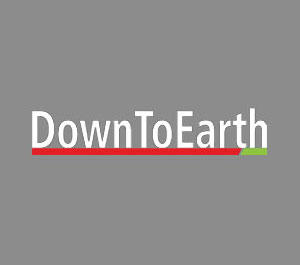Anderson's Extradition & Approval for a Memorial
A Delhi court of the chief metropolitan magistrate gave the green signal to the Central Bureau of Investigation (CBI) on March 23 to extradite former Union Carbide Corporation (UCC) chairperson Warren Anderson- an accused in the 1984 Bhopal gas tragedy case, now based in US. Anderson, now 90, has never faced trial in the Bhopal gas tragedy case.
The Chief Metropolitan Magistrate Vinod Yadav stated that "Considering the entire facts in its holistic perspective and sentiments of the disaster-hit people, I deem it appropriate and in the interest of justice that he be extradited."
The agency while pushing for the extradition of Anderson stated that CBI had enough material to implicate the UCC chairman in the case. The process of extradition will be carried through the Ministry of External Affairs (MEA) which will get in touch with the US Justice Department. The US justice department will further review the evidence India provides to them before taking a final decision on the extradition of Anderson.
India had approached US for extradition of Anderson in 2003 but Washington had rejected the plea in 2004 citing the provisions in the bilateral extradition treaty that did not allow this extradition.
Even now, activists working closely on the Bhopal gas tragedy believe that the CBI isn't fully prepared to carry out Anderson's extradition. This could be a hurried step by the CBI just days before the group of ministers on the Bhopal gas tragedy had to meet on March 24.
The meeting of the group of ministers too seemed to be done in a hurry as the date for the hearing of the criminal and civil curative petitions approaches on April 13. The group of ministers gave a in-principle nod for a rs 500 crore fund to be allocated by the Planning Commission for improving the medical facility and providing for medicines and medical instruments. The state ministry of Bhopal Gas Tragedy Relief and Rehabilitation will now draw an implementation plan.
The in principle approval was also given to construct a memorial for the Bhopal gas tragedy victims. Though the approval for the memorial ushers in good news for the victims, there is a twist in the tale. The memorial can only be built if the site has been cleared of the 340 mt of toxic waste. That has not been done despite the fact that a Bhopal Environmental Remediation Oversight Committee, to overlook the waste disposal, decontamination and remediation was set up in June last year. There was supposed to be a proper assessment of the toxic waste of the gas tragedy site.
Rachna Dhingra, an activist with the Bhopal Group for Information and Action said that the study done by National Environmental Engineering Research Institute (NEERI),National Geophysical Research Institute (NGRI) and Indian Institute of Chemical Technology (IICT) was of no use as it did not find high levels of contamination, a fact that had been proven otherwise by other studies including the one did by Centre for Science and Environment.
The study by NEERI- NGRI- IICT was rejected by 21 out of the 31 experts to whom the study was referred, so effectively the first phase of the process of cleaning up of the site, that took two years, is unsatisfactory for the victims.
Babulal Gaur, the state minister for the Bhopal Gas Tragedy Relief and Rehabilitation, says otherwise. According to him there is no problem with the site and there is actually no impact within the site- 'There are trees and there are birds and cattle. They are fine. There is so much bad publicity of waste, everything is fine.' But he does agree that none of the state is ready to dispose off the 340 mt of waste.
So while Bhopal's toxic waste continues to remain a hot potato, all eyes are now set on the Supreme Court hearing of the civil and criminal curative petition that begins on April 13.
Cse Laboratory Report
Press Releases
Initiatives
Story
Down to Earth

July 14, 2017

July 14, 2017

July 14, 2017

July 14, 2017

July 14, 2017

July 14, 2017

July 14, 2017

July 14, 2017

July 14, 2017

July 14, 2017

July 14, 2017



Share this article